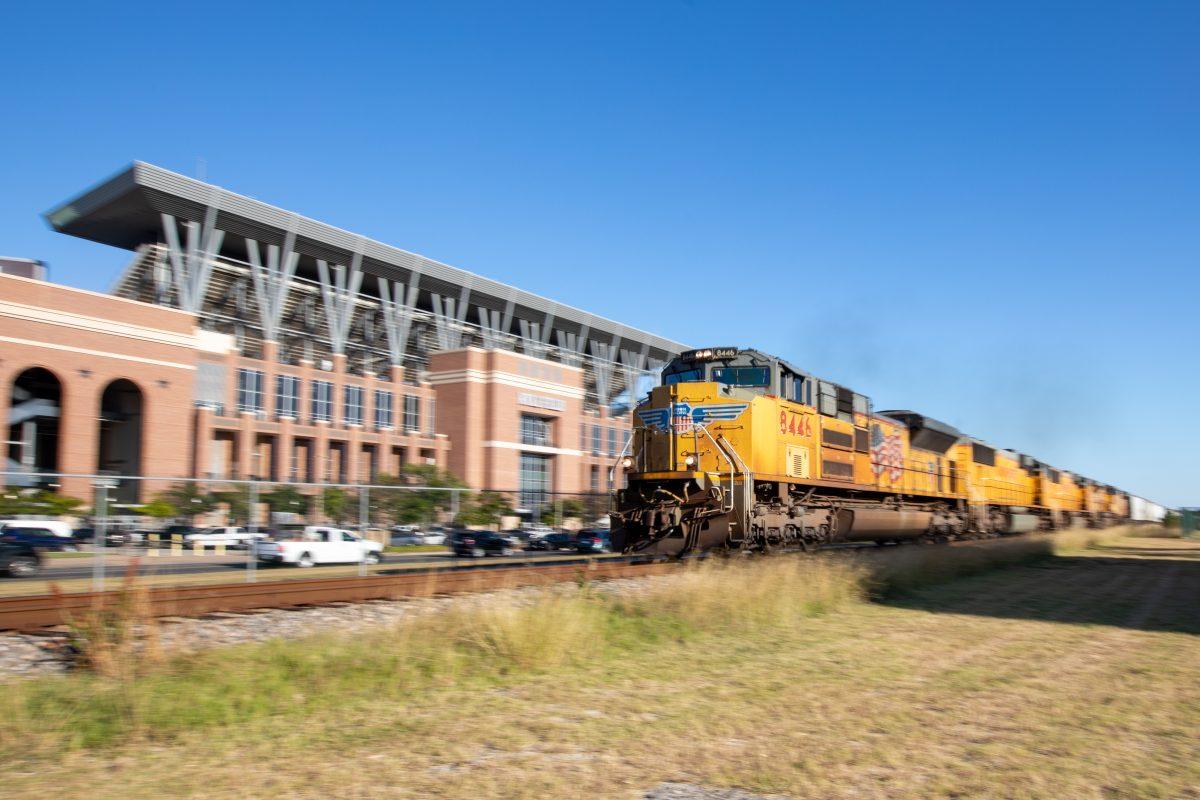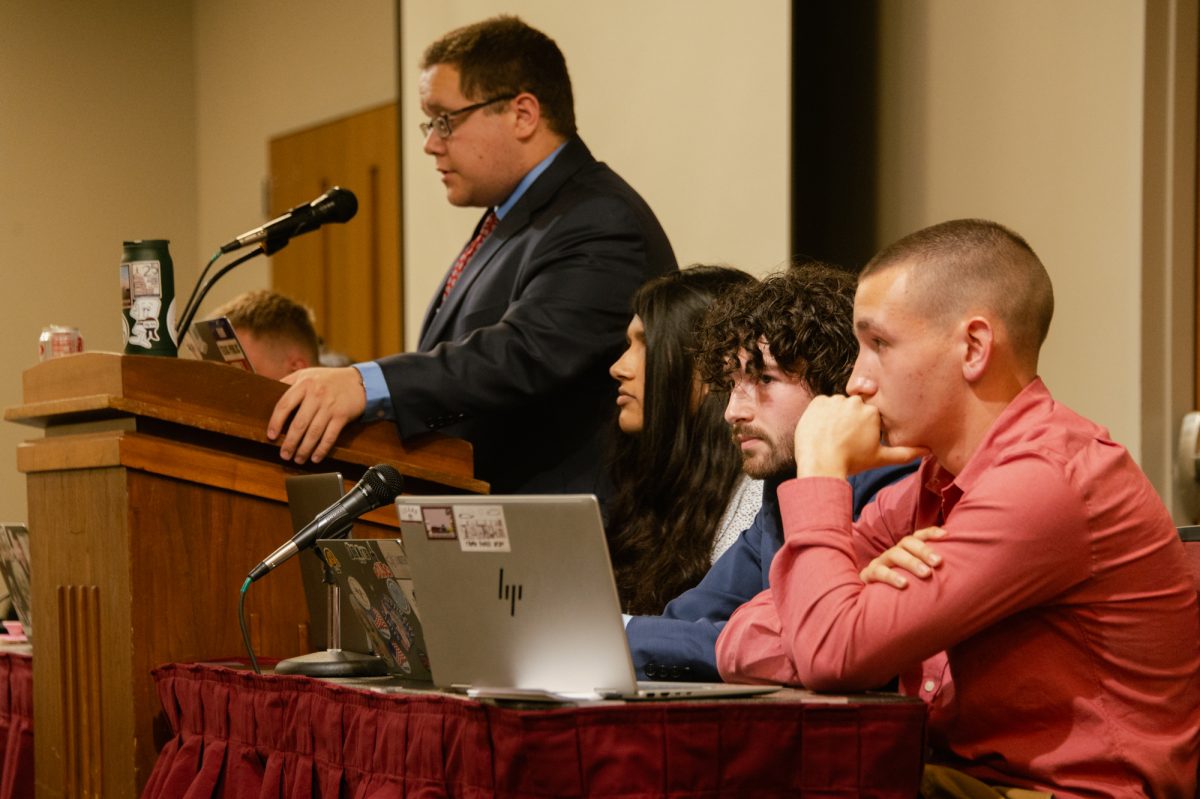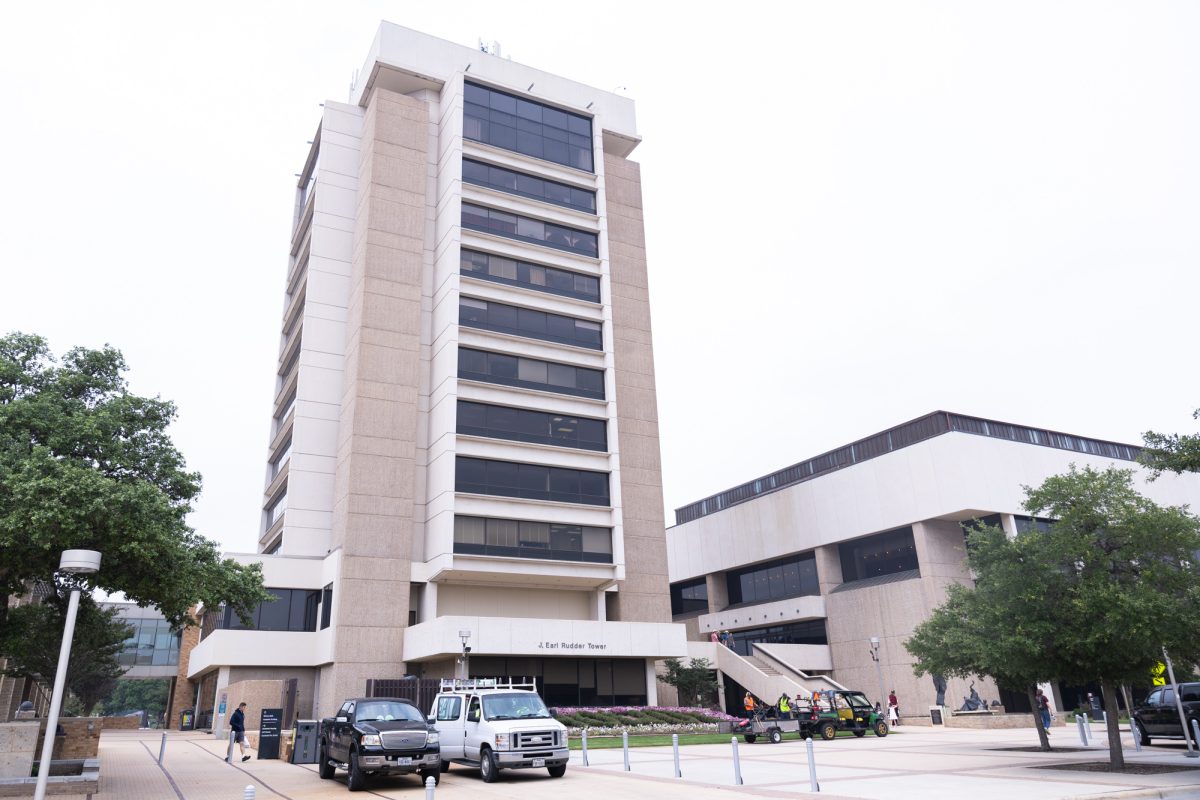Announced in 2012, private railroad company Texas Central proposed its idea for a self-described “Texas high-speed train” that will be the “first truly high-speed train project” in the U.S. and Texas, according to its website. However, the now decade-old project has shown nothing but slow progress.
The alluring proposal for the infrastructure project claims its 240-mile-long track will connect Texas through three passenger stations in North Texas, Brazos Valley and greater Houston within a 90-minute high-speed train ride. According to the project timeline, Texas Central estimates the project to be completed by 2026, when the railway will be fully operational for commercial use.
Texas Central estimates the project to cost $20 billion to complete. However, they expect the project to have a direct cumulative economic impact of $36 billion over the next 25 years. Texas Central also estimates that construction will create 17,000 jobs and 1,500 permanent jobs once the railway is operational.
Texas Central states the project will be privately funded and describes the proposed railway as a “tax payer, not [a] tax taker.”
The fully electric railway project targets nearly 100,000 Texan “super commuters,” who travel between Houston and Dallas-Fort Worth more than once a week, according to Texas Central and a study conducted by Mitchell L. Moss and Carson Qing. The project aims to provide an efficient and environmentally low-impact travel method, but the project is currently overshadowed by its growing history of legal issues and lack of public developments.
Notably, multiple legal cases have been pursued because of Texas Central’s tactics to acquire land through eminent domain. According to Cornell Law School, local, state and federal governments can enact eminent domain to take private property for public use if the property owners are properly compensated.
Property owners who live along the railway’s proposed route have been protesting against the construction of the railway for years. Texas Central has been adamant about conducting surveys of private property for its route, but many affected landowners don’t want to give the project right-of-way permission for the route.
In a KXXV article, affected landowners, many of whom own rural land near the proposed route, are concerned about the environmental impacts, safety risks and aesthetic issues from constructing the railway.
Although the project has faced several court cases since 2016, many affected Texans waited in anticipation of the Texas Supreme Court’s decision in James Fredrick Miles v. Texas Central Railroad and Integrated Texas Logistics, Inc.
On June 24, the Texas Supreme Court decided to rule in favor of Texas Central’s right to eminent domain. Texas Central had long-standing issues with the company’s classification, which would impact its right to eminent domain.
However, the apparent “win” in Miles v. Texas Central for the project was not widely celebrated.
On June 11, Texas Central’s CEO Carlos Aguilar announced his resignation from the company via LinkedIn. Aguilar had held the position since December 2016.
“While I could not align our current stakeholders on a common vision for a path forward, I wish the project the greatest success and remain convinced of the importance of this venture for the safety and prosperity of ALL Texans,” Aguilar wrote.
Engineering News-Record reported that Texas Central’s board had shortly disbanded after Aguilar’s resignation but before the Miles v. Texas Central ruling.
Besides its history of courtroom conflicts, Texas Central has made few public announcements about any progress of the project.
The Battalion reached out to Texas Central for an interview, but Texas Central declined — instead offering a comment.
“It has been an eventful summer for Texas Central, and we continue to move forward,” Right of Way Director Katie Barnes wrote.
On behalf of the company, Barnes also wrote that there was no additional information to share beyond the most recent press release, from July 8. Before the most recent release, its last release was published on Sept. 21, 2020.
“Texas Central remains open for business under its new management, is continuing to seek further investment and is moving forward with the development of this high-speed train,” Barnes wrote.
The press release is short, giving little substantial information regarding the project’s progress. Texas Central briefly thanked project investors and stakeholders, stating that the company has made significant strides in the project over the last several years.
“We look forward to being able to say more about this at an appropriate time in the near future,” Texas Central wrote.










